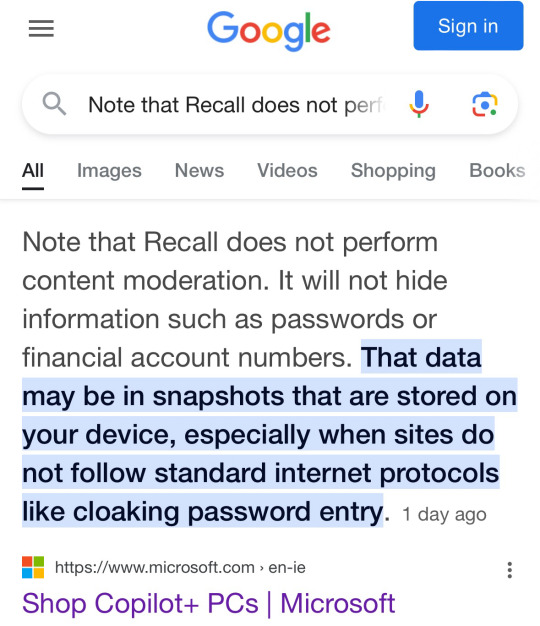Hello. I'm Elanor. There is nothing but nonsense here; mostly trees, with occasional shitposts about politics, walruses, video games, or my friend Phil. Eventually I will actually publish that book about queer Welsh werewolves I keep teasing you with (sorry) (I also delete anon hate without reading so tbh you might as well send it to your therapist instead xoxo)
Don't wanna be here? Send us removal request.
Text
wow this is really clever because [USA law that isn't applicable in the country this is happening in]!
OP you need to get a lawyer because [USA law that isn't applicable in the country this is happening in]!
um but it's literally illegal for them to [thing that isn't illegal in the country this is happening in]
I'd really recommend you contact [US group who aren't in the country this is happening in]
oh here's a link for [thing that isn't applicable in the country this is happening in]
#this winds me to hell and back#no one should ever be using the words 'that's illegal' on the internet without adding 'in X country'
3K notes
·
View notes
Text

I don't care if this is real or not, i want this to be known as "having a rowling"
9K notes
·
View notes
Text
can u imagine if other pieces of media were as scared of calling their monsters what they are as zombie media is about calling zombies zombies
19K notes
·
View notes
Text

“Yellow Bittern”
by Vo Rin, Vietnam
The 35 Photography Awards
3K notes
·
View notes
Text

@agardenandlibrary Gondor needs no context
88 notes
·
View notes
Text
I love to write myself into situations where I end up requiring some kind of specific knowledge. Does anyone on here know a good type of plane/helicopter that fits the following criteria:
- big enough to hold 2 live people and 1 well-secured coffin and fly them approx. 600 miles
- conceivably in reasonably current use in the UK
- kind of shitty
Plot beat in question is that an air force guy is being made to fly a civilian aircraft for reasons of being Sneaky, and he really hates the shitty plane they've given him. This is for a short horror story in which the plane crashes and thus delivers them unto The Horrors, so I need an aircraft with a high Even The Smallest Problem Could Utterly Fuck It potential, and if it's in some way a silly little plane that's going to piss off a character who believes in things like Appearances and Empire and Masculinity all the better
192 notes
·
View notes
Note
On the nuclear point, we also thought it would take 1000 years for Chernobyl to recover, if it even could. It was expected to be a wasteland. Bare mud and rusting shells of buildings as far as the eye could see; after the reactor blew, in the days that followed the forests turned red as they died from the radiation, and they had to be felled, chipped, and buried down deep. Every plant, every animal, gone.
I took these photos in 2016, on the 30th anniversary:




Animals that have now returned:
Pine martens
Deer
Wild boar
Wolves (previously extinct in the region)
Bears (endangered in the region)
European bison (previously extinct in the region)
Giant eight foot catfish in the cooling channels (fed my mate's lunch)
And you would not BELIEVE the insect life. The exclusion zone - even the worst affected bit around Pripyat and the reactor - is so, so alive. The only taxon struggling to return still is birds, and even then, I did hear a crow at one point in Pripyat.
Even if we die. Life, in some form, will always find a way.
why bother caring about the environment when 1. It’s so obviously a lost cause and 2. There’s definitely going to be a nuclear war?
And what are you doing about it Anon? Learn about ecological restoration or get out of my way.
#environment!#my main research has been in habitat restoration#I fucking promise you it's not a lost cause unless you don't actually know anything about it#this is a big reason why the constant 'its depressing so I don't think about it ' mentality is far worse for the depression#educate yourself and you'll know it's not a fucking lost cause
32K notes
·
View notes
Text
Gosh.

Must be rough for them.
#also like#tye point of the post was not 'this is the perfect solution to the social issue'#it was 'this is the solution for rich people terrified of bad optics'#which is correct
39K notes
·
View notes
Text
As of December 2024, The Cook Islands' Palmerston Atoll was declared entirely rat free. This was after significant eradication efforts and monitoring to confirm the rats were gone, both of which involved the local community. Removing the rats has helped to improve food security and safety for residents, as well as increasing the prevalence and numbers of native wildlife.
Arthur Neale, the atoll’s Executive Officer, says Palmerston’s rat-free status means the world to him and everyone else who lives on the atoll. “Rats infested the atoll for over a century. They ate our crops, invaded our homes and harmed local wildlife. We saw the rat problem becoming worse, with the potential to seriously undermine our resilience in the face of climate change impacts. “Benefits from the rat eradication are already evident. Our food security has improved massively. Fruits like guava, mango and star fruit are now abundant and free from rat damage. Our nu mangaro (a coconut tree variety) are thriving. Vegetables, especially cucumbers, have seen an astonishing increase in yield. “We’re very excited to see more native species now rats are no longer eating them. Seedlings of tamanu and puka are increasing and we’re seeing and hearing more birds. Wood pigeons and red-tailed tropic birds have returned to Home Islet. Crabs and lizards appear to be more abundant.”
Here's a cool video from a few years ago covering the work to remove rats and inclusion with the local community (Just a heads up the video does show dead rats a couple of times).
youtube
2K notes
·
View notes
Text
#lol#if you're ever in this position btw best practice is to put in a ramp and move them towards that#less stressful for both of you#(plus if you own a pool you should definitely get a wildlife step/ramp anyway)#animalia
134K notes
·
View notes
Text
"preferred name" "preferred pronouns" um NO? there's my real name and my real pronouns. apparently you are using some fake evil version?
usually im in favor of evil versions of things but yikes that's rank you skank
#there's also a lot of reasons someone might have a preferred name that are not related to queerness#I'm Welsh; the number of Welsh people I know who use a middle name is High#it's very culturally normal here
9K notes
·
View notes
Text
‘We need more loud, unashamed queers’ yes but some of you can’t even seem to handle a bisexual woman liking men.
13K notes
·
View notes
Text
Hot take but I really do think that some of y’all need to consider how/why/when/how often you’re making fun of straight people for being straight
I do it too, I’m not going to pretend I don’t make jokes about the hets, or the down with cis bus, or whatever
But I recently befriended a cis, straight dude and I have watched him be dismissed, degraded, and unambiguously insulted for the perceived “crime” of being straight — all in queer environments where he is allegedly “completely welcome” and surrounded by “friends”
This guy is not a toxic person! But I have seen him be made to feel so small and like his comfort and safety in those spaces are conditional on his silence and acceptance of being treated like a human dunk zone, and I think that some of y’all have had so much shit from straight/cis people that the second you feel like you’ve got an inch, you want to luxuriate in the perceived catharsis of bullying someone who— actually —doesn’t deserve it
And until he very, very carefully mentioned to me in private that it makes him feel bad, I didn’t even clock that I was involved in doing that, that it had become so instinctive for me to make casual jokes like that, and that— well meaning or otherwise —I had been contributing to an environment that made someone I really really like feel like shit
So, I dunno, I think maybe some of y’all should think about that too
#this is true for every social axis of oppression btw#race gender disability class sexuality age... all of them#You Too Can Be The Bully#social justice
41K notes
·
View notes
Photo

This Day in History: Juneteenth is the oldest known celebration commemorating the ending of slavery in the United Sates. Dating back to 1865, it was on June 19th that the Union soldiers landed at Galveston, Texas with news that the war had ended and that the enslaved were now free two and a half years after President Lincoln’s Emancipation Proclamation.
40K notes
·
View notes
Text
Literal definition of spyware:

Also From Microsoft’s own FAQ: "Note that Recall does not perform content moderation. It will not hide information such as passwords or financial account numbers. 🤡

249K notes
·
View notes
Note
re: the daddyhole road sign post, what makes the image description so bad?
God, what an opening line
But yes! To answer your question:
I think enough has been written by now about how image descriptions are supposed to just be a quick summary of the relevant information - with heavy emphasis on the word relevant. And it definitely fell down there, because the relevant elements in that screenshot were:
1. The screenshotted headline
2. The screenshotted subtitle
3. The fact that the accompanying photo was of the Daddyhole Road sign that people kept wanting to steal.
What was not relevant was the additional road information that was part of the sign, or the type of wall surface the sign was fixed to, or the colours involved in and of these extraneous details, or the shape of the sign, or the font used on it. None of that matters. And it's relatively harmless, certainly, but unnecessary clutter in an image description is a bad thing for, ironically, accessibility reasons, so it's certainly not best practice.
But on top of THAT if you're going to decide to give extra information about the appearance and nature of the sign, it is maybe a solid plan to look up what the sign actually means lol. We were treated to a painful description of a "T-shape in X colours", or however it was phrased (EDIT: I just went back and checked and it was a 'hammer with a red end' lol. I am so charmed.) Like. Besties that's an actual road sign. It means the street is a dead end. If you're going to over-describe, describe accurately, you know? Apart from anything else, Daddyhole Road being a dead end is hilarious. A description of coloured blocks forming a T means nothing. It's like if you described this:

as "A solid red octagon with a red and white trim. In the middle are four white shapes. The first is two semicircles with no flat base line, curving away from each other; the left end of the top one is connected to the right end of the bottom one. The second is a horizontal line at the top, with a vertical line extending down from the middle. The third is a ring. The fourth is a vertical line, but there's a semicircle sticking out of the top part to the right."
ALL OF WHICH IS TO SAY I have actually seen much worse, and certainly definitely good on them for trying. I do not judge. There are the best of intentions at play here. And there's every chance other examples of their work are exceptional. But yeah this one amused me
115 notes
·
View notes
